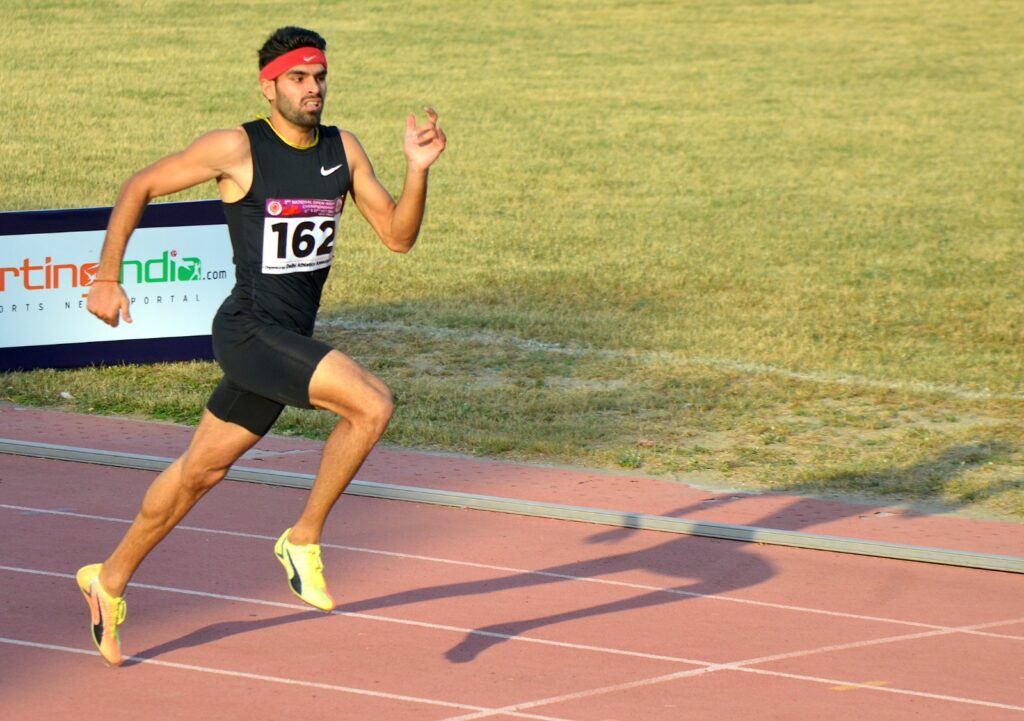Archana Suseendran, a 29-year-old sprinter, has been given an 18-month ban by a National Anti-Doping Disciplinary Panel (ADDP) after she tested positive for a banned substance in an out-of-competition test. She paid the price for not doing due diligence before consuming the prescription medication for high blood pressure and for not mentioning it in the Dope Control Form.
Her urine sample, collected on December 19, tested positive for Chlortalidone, a banned non-specified substance. She had not mentioned the medications prescribed by her family physician, for giddiness and high blood pressure, in the Dope Control Form submitted on December 10, 2022. She claimed that she had forgotten the names of the medicines.
However, after the National Anti-Doping Agency notified her of the positive test, Archana sought a retroactive Therapeutic Use Exemption (TUE). The NADA’s TUE Committee rejected that application because it found the medication prescribed was not appropriate for the condition (one reading of high blood pressure).
Archana claimed that she had discharged her burden of establishing how the prohibited substance entered her body and, therefore, bore no fault or negligence. Hers was a light degree of fault and deserved only a reprimand. NADA argued that the experienced athlete, well aware of anti-doping procedures, had not done any due diligence when consuming the medicines.
On June 13, an ADDP, chaired by Jyoti Zonglugu and including Dr. Sanjogita Soodan and Archana Surve, sanctioned her under Rule 10.6.1, holding the experienced athlete guilty of not disclosing the medication on the Dope Control Form and consuming it without reading the label.
As a result of the sanction, all of Archana’s results – including her fourth-place finish in the 60m at the Asian Indoor Athletics Championships in Nur-Sultan, the three 100m victories in the Indian Grand Prix series, and the second place in both the 100m and 200m in the Federation Cup – will be disqualified.
Ayush Dabas tests positive for metabolic modulator, gets four-year ineligibility period
Another National Anti-Doping Disciplinary Panel, chaired by Chaitanya Mahajan and including Dr RK Arya and Akhil Kumar, sanctioned Ayush Dabas, the 400m runner, a four-year period of ineligibility after his out-of-competition sample, given on November 30, 2022, tested positive for GW1516 Sulfone, a banned metabolic modulator.
Dabas said his multivitamins or herbal medicine could have been contaminated, and wanted those tested. However, the Panel saw no merit in that contention as multivitamins are drugs and not supplements that could be contaminated with metabolite modulators. Since GW1516 is not approved for human consumption, no multivitamin could be contaminated, it held.
His sample was collected six weeks after he clocked his personal-best time of 46.52 seconds in the National Open Athletics Championships in Bengaluru. He had also anchored the Haryana 4x400m men and mixed relay teams to victory in the National Games in Gandhinagar and the men’s 1600m relay team to gold in the National Open in Bengaluru.
Appeal panel confirms four-year ban for Aishwarya
Meanwhile, it transpires that a National Anti-Doping Appeal Panel chaired by Abhinav Mukherji and including Dr Vivek Singh and Prashanti Singh upheld the four-year sanction imposed on B Aishwarya, the triple jumper, by an ADAP in February this year. She claimed she had taken Ostarine, the banned drug, on the advice of another athlete to tackle her shoulder pain during weight training.
It went to the extent of recording that Aishwarya had procured Ostarine specifically to gain unfair competitive advantage. “The tablet ingested by the Appellant is not prescribed for patients and is a research medicine,” the panel noted in its order. “The use and its prescription is not permitted in India.
“In fact, it has been brought out that this research drug has been banned in India, amongst others, due to many adverse side-effects and is used sparingly even as an investigational drug for research. This is thus not available in the market. Thus, the Appellant has obviously procured this drug for the specific purpose of ingesting the same to gain an unfair competitive advantage.”




